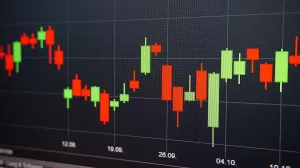What are the implications of geopolitical events on LME metal prices?
3 min read
What are the implications of geopolitical events on LME metal prices?
In the complex ecosystem of global commodities markets, geopolitical events wield a profound influence on price dynamics, particularly in the realm of metals traded on the London Metal Exchange (LME). From trade tensions and geopolitical conflicts to shifts in diplomatic relations, geopolitical developments can send shockwaves through metal markets, impacting supply chains, demand patterns, and investor sentiment. Let’s delve into the intricate interplay between geopolitics and LME metal prices, uncovering the implications for traders, investors, and the broader global economy.
Understanding Geopolitical Events: Geopolitical events encompass a wide range of political, economic, and social developments occurring on the global stage, often involving interactions between nation-states and international actors. These events can include geopolitical tensions, trade disputes, sanctions, geopolitical alliances, and military conflicts, among others.
Impact on Metal Markets: Geopolitical events can have far-reaching implications for LME metal prices, disrupting supply chains, affecting production levels, and altering demand dynamics. For instance, trade tensions between major economies may lead to tariffs or trade restrictions, disrupting the flow of raw materials and finished goods, thereby influencing metal prices.
Supply Chain Disruptions: Geopolitical events can trigger supply chain disruptions, affecting the production and distribution of metals traded on the LME. For example, political unrest in key mining regions or trade embargoes on metal-producing countries may lead to supply shortages or production delays, exerting upward pressure on prices.
Demand Dynamics: Geopolitical events can also influence demand dynamics for LME metals, as geopolitical uncertainties may prompt investors and businesses to seek safe-haven assets or adjust their investment strategies. Additionally, geopolitical developments may impact industrial demand for metals, particularly in sectors sensitive to geopolitical risks, such as defense, aerospace, and infrastructure.
Market Sentiment and Risk Perception: Geopolitical events often influence market sentiment and risk perception, shaping investor behavior and price volatility in LME metal markets. Heightened geopolitical tensions may lead to increased risk aversion among investors, driving demand for metals perceived as safe havens, such as gold and silver, while exerting downward pressure on industrial metals like copper and aluminum.
Price Volatility and Trading Opportunities: Geopolitical events can result in heightened price volatility in LME metal markets, creating both challenges and opportunities for traders and investors. While increased volatility may pose risks for market participants, it also presents opportunities for profit through strategic trading and risk management strategies.
Mitigating Geopolitical Risks: In navigating the impact of geopolitical events on LME metal prices, market participants employ various risk management strategies, including hedging, diversification, and monitoring geopolitical developments closely. By staying informed and proactive, traders and investors can mitigate the impact of geopolitical risks on their portfolios and capitalize on emerging opportunities.
Conclusion: The nexus between geopolitics and LME metal prices underscores the interconnectedness of global markets and the multifaceted nature of commodity trading. As geopolitical events continue to shape the geopolitical landscape, their impact on metal prices will remain a key consideration for traders, investors, and policymakers alike. By understanding the implications of geopolitical developments and adopting proactive risk management strategies, market participants can navigate the complexities of LME metal markets with resilience and agility.



